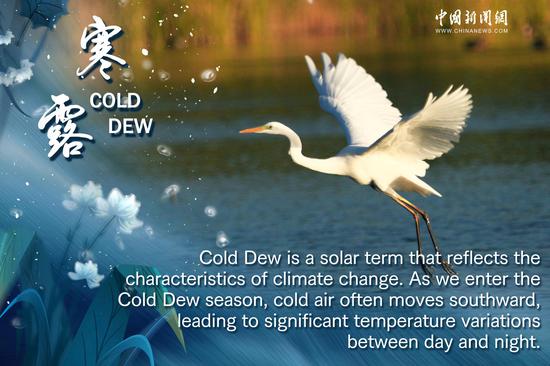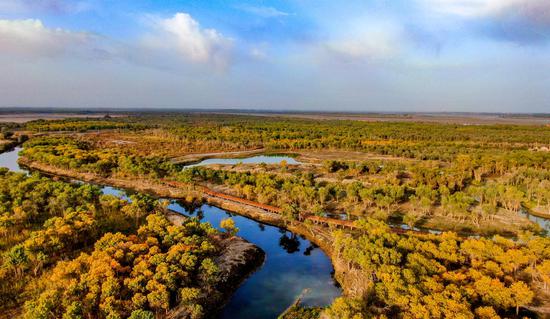This year looks set to be the hottest year on record, say forecasters, after record-breaking heat soared throughout Europe, the United States and countries worldwide.
The summer of 2023 was the hottest ever recorded, with sweltering heat in parts of the U.S. and European countries Italy, Spain and Greece.
September has also seen blistering temperatures, unusual for this time of year, according to Copernicus, Europe's climate change service, which examines international weather patterns.
Samantha Burgess, deputy director of Copernicus, said in a statement that last month several records were broken "by an extraordinary amount" of weather that brought on never-before-seen high temperatures for that time of year.
Last month, temperatures were 1.75 C or 3.2 F warmer than usual for the weather average recorded in the month of September from 1850 to 1900, described as the preindustrial reference period.
It broke the previous monthly record in 2020 by 0.5 C, according to Copernicus. September has not been so hot since the service began its records in 1940.
Burgess added: "The unprecedented temperatures for the time of year observed in September following a record summer have broken records by an extraordinary amount."
The record-breaking heat puts 2023 on track to be the hottest year on record internationally, with weather patterns 1.4 C above preindustrial levels, Burgess said. This year had several record-breaking hot months, including July and August.
July had the hottest four days in a row ever recorded on Earth as temperatures soared to a balmy 17.18 C worldwide, or 62.92 F, the U.S. National Centers for Environmental Prediction found.
October is also on track to be hot in European countries Spain, Poland, Austria and France.
Copernicus calculates its weather results by analyzing billions of measurements taken from weather stations around the world, ships, satellites and aircraft, which track changes in sea ice and global surface air temperature.
Climate change activists warn that current temperatures are dangerously close to the limit set for global warming of 1.5 C, or 2.7 F above preindustrial levels laid out in the Paris Agreement of 2015 — a legally binding international treaty on climate change.
Thousands of protesters from around the world descended on Lower Manhattan last month to demonstrate against climate change as world leaders met at the United Nations for a one-day climate ambition summit.
They urged leaders to do more and blamed greenhouse gas emissions over the equatorial eastern Pacific for pushing global temperatures up.
International leaders will meet in Dubai for the United Nations COP28 climate summit in December to discuss climate goals.
Thanu Yakupitiyage, former communications director of 350 Action, an organization that mobilizes progressive voters and works to elect climate champions, said that extreme weather patterns are clear indications that the world must act quickly to address climate change.
"In 2022, alone, there was damage from climate disasters, including [last] September's hurricanes Fiona and Ian; it exceeded $100 billion in damages, just from two hurricanes alone," she told China Daily.
"Wildfires ravaged the U.S. West Coast, which has some of the worst air quality in the world because of fires and the climate crisis. The bigger picture is that we have three years to write the ship to avoid a point of no return on climate."
Extreme weather continued this year.
Last month, New York saw record-breaking rainfall that surpassed the record for any day in September during Hurricane Donna in 1960, the National Weather Service said. The rain caused the city's streets to be flooded and parts of the transit system to stop working.
In the same month, Canada dealt with devastating wildfires. South America had record-breaking heat, and thousands died from a massive flood in Libya.
Greece was ravaged by Storm Elias which dumped several months of rain on the island in less than a day. It came just weeks after Storm Daniel killed 17 people in the country. Heavy rain in Greece, Turkey and Bulgaria left 14 dead.
Heat is the No 1 weather-related killer of people in the world, according to the Centers for Disease Control and Prevention (CDC.) In the U.S., 600 people die from heat-related illnesses each year, the CDC reports.


















































 京公网安备 11010202009201号
京公网安备 11010202009201号
